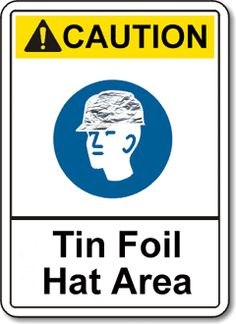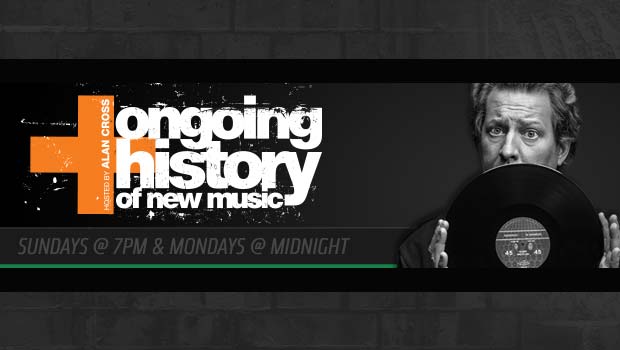
The 70 Greatest Conspiracy Theories in Pop Culture History
My next Ongoing History of New Music episode will dive deep into tinfoil hat territory as we explore some murky conspiracy theories from the world of alt-rock. To get you prepped and paranoid, Vulture.com has this list of things that will make you go “Wait a second…”
For decades, the conspiracy theorist shouted his suspicions on the fringes of society, never ascending to a position of such prominence as, say, the presidential nominee of a major American political party. Now that’s changed, and conspiracy theories are having a yuge moment in the mainstream.
Conventional wisdom puts the beginning of modern conspiracy-theory culture at the JFK assassination. But it probably makes more sense to think of it evolving in its aftermath, in the years following the shooting, once the shock wore off. In the late 1960s, that is, which just so happen to be the years when the country radically polarized along the political lines we now know so oppressively well. The assassination wasn’t just a chaotic, spectacular, improbable event that Americans desperately wanted explained, even if the explanations were terrifying (conspiracy-theory culture being essentially willed into being by those for whom nothing was more terrifying than randomness and meaninglessness). It was also the locus of an ideological battlefield over who were the heroes and who the real villains in American life: pro-Castro and anti-Castro leftists; Russian operatives; the CIA; LBJ; the Mafia; the Camelot Kennedys — the list goes on. We floated conspiracy theories, in other words, as a way of projecting politics.
While there were both political and pop-culture conspiracy theories in the 1960s and 1970s — Elvis is still alive, you may have heard — conspiracism as a phenomenon didn’t come into full flower until the 1990s. That was thanks to the internet. Message boards and chat rooms of that era gave us the golden age of political conspiracy theory, which we are still living in. They were also the birthplace of pop-culture paranoia — when doubts about the real identities of singers and actors, whether they had actually died or truly written that particular song, gave rise to real debate and “forensic” scrutiny. (Is Stevie Wonder really blind? We’ll have to consider the relevant video … ) These days, pop-culture obsessives are quick to cook up conspiracies anytime a celebrity dies, changes her appearance, or even stands next to a triangle, and ideas can now be passed from the edges of sanity to your Facebook feed in a matter of minutes, converting more of the easily influenced into paranoid believers. Not to say that pop-culture conspiracies live only in the present — they are often most delicious when they reach back in time, even way back in time, to propose we consider, say, whether it was George Lucas who actually directed Return of the Jedi (which was, you have to admit, worse than Empire) or whether it was actually Emily Brontë’s brother who wrote Wuthering Heights (exhibit A: fucking Heathcliff!).
Vulture has spent the past few months undertaking an exhaustive cataloguing of these conspiracy theories of pop culture. Music, film, literature, TV, and anything else a celebrity might touch are organized by “genre” (do you like reading about zombie pop stars or Illuminati Svengalis or secret authors of famous books?) and presented pure — that is, not as investigative claims but conspiracy theories. And as a sort of “review of the literature,” the “data” below do contain some lessons and insights. We did, in other words, learn some things!
Keep reading–if you dare. Don’t be a sheeple! Learn the truth!



